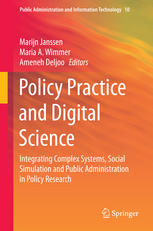

Most ebook files are in PDF format, so you can easily read them using various software such as Foxit Reader or directly on the Google Chrome browser.
Some ebook files are released by publishers in other formats such as .awz, .mobi, .epub, .fb2, etc. You may need to install specific software to read these formats on mobile/PC, such as Calibre.
Please read the tutorial at this link: https://ebookbell.com/faq
We offer FREE conversion to the popular formats you request; however, this may take some time. Therefore, right after payment, please email us, and we will try to provide the service as quickly as possible.
For some exceptional file formats or broken links (if any), please refrain from opening any disputes. Instead, email us first, and we will try to assist within a maximum of 6 hours.
EbookBell Team

0.0
0 reviewsThe explosive growth in data, computational power, and social media creates new opportunities for innovating the processes and solutions of Information and communications technology (ICT) based policy-making and research. To take advantage of these developments in the digital world, new approaches, concepts, instruments and methods are needed to navigate the societal and computational complexity. This requires extensive interdisciplinary knowledge of public administration, policy analyses, information systems, complex systems and computer science. This book provides the foundation for this new interdisciplinary field, in which various traditional disciplines are blending. Both policy makers, executors and those in charge of policy implementations acknowledge that ICT is becoming more important and is changing the policy-making process, resulting in a next generation policy-making based on ICT support. Web 2.0 and even Web 3.0 point to the specific applications of social networks, semantically enriched and linked data, whereas policy-making has also to do with the use of the vast amount of data, predictions and forecasts, and improving the outcomes of policy-making, which is confronted with an increasing complexity and uncertainty of the outcomes. The field of policy-making is changing and driven by developments like open data, computational methods for processing data, opining mining, simulation and visualization of rich data sets, all combined with public engagement, social media and participatory tools.